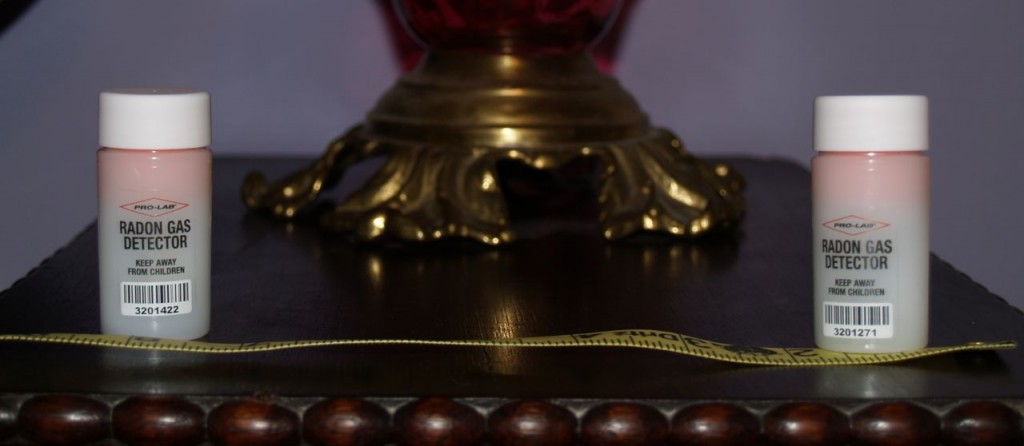Previously I wrote, or ranted, about stupid smoke detector design, and at the end of the post I mentioned that smoke detectors have a small amount of radioactive material in them, and thus they should be disposed of properly. I didn’t say specifically how because it really depends on where you live. I live in Virginia, and I have since learned that there is no place in Virginia to dispose of them. My county’s website says they have no way to dispose of them and to try to return them to the manufacturer, but if you can’t find any other way to dispose of them, they can be thrown away in the trash. I contacted Kidde, the manufacturer, and they said they will accept them, you just have to mail the smoke detectors to them. The customer service representative I spoke to said just put “for disposal” on the package, and they will take care of them. I actually had a total of three to return because I had the malfunctioning one plus two ones I had originally bought before I had the hardwired ones installed. So last month, I mailed three smoke detectors back to Kidde. It cost me $6.15, but I now have a clear conscience. This may seem a bit much to some people, but I am an environmental engineer. My career has mostly been dedicated to cleaning up and properly taking care of human and hazardous waste. It has also been about dealing with contamination when waste was not taken care of properly, so there is no way I am going to improperly dispose of waste unless it is completely impossible not to do so.
Here is a fun quirk of United States environmental law, my smoke detectors are non-hazardous because they were used in my house. Those same smoke detectors, if used in a commercial or other non-household setting, are hazardous. Hazardous waste in the US is regulated through the Resource Conservation and Recovery Act (RCRA, pronounced rick-ra). Under 40 CFR §261.4(b)(1), “household waste, including household waste that has been collected, transported, stored, treated, disposed, recovered (e.g., refuse-derived fuel) or reused” is considered to be non-hazardous and exempt from RCRA regulation. There are a bunch of reasons why this exemption is in RCRA, but how you treat your legally-not-hazardous, but technically-hazardous, household waste comes down to a bit of just because you can do something, doesn’t mean you should. However, disposal of household waste is also governed by state and local regulations. Just because federal laws allows you to dispose of household hazardous waste in the trash, does not mean your municipality will because they are the ones who actually have to deal with the waste.
Most people know that fluorescent bulbs contain a small amount of mercury, and thus if you ever break one indoors, you should open the windows and leave the room while the mercury volatilizes. It is because of this mercury that most (or possibly all) municipalities and/or waste disposal companies state that fluorescent bulbs should not be put in the trash. The vast majority of trash in the US is sent to landfills and the rest to incinerators, and mercury does not belong in either of these type of disposal facilities. Also, and just as importantly, the bulbs can easily be broken during transfer from your trash can to the truck, while in the truck (especially if it compacts), at the transfer station, at the disposal site, and all the places in between. If it breaks, the workers can be exposed to the mercury, and thus it is not just about protecting the environment but also the workers.
There is more household waste that is technically hazardous. Aerosol cans can become explosive if punctured. Various cleaning, home maintenance, and vehicle fluids routinely used in household are hazardous to the environment. Conversely, both prescription and over-the-counter (and for that matter illicit) unused drugs should be disposed of in a seal container and put in the trash. Putting unused drugs in the trash is far better for the environment than putting them down the drain where they will eventually get into the waterways. Wastewater plants are not designed to remove chemicals like drugs, but that is a post for another day. [I suppose if someone is trying to dispose of their illicit drugs it is most likely because the police are raiding their house, and they are really not thinking about the environment but about jail, but I still don’t want to drink water with trace amounts of cocaine because some druggie upstream of my water treatment plant was trying to evade arrest.]
The point of all this is, think before you toss something in the trash. Spend a little time on your municipalities website, as most now have them, educating yourself on what can and can’t be thrown in the trash and where things that can’t be thrown in the trash can be disposed. While you are at it, educate yourself on what things can and can’t be recycled in your area. There may be a recycling market in your area for something you didn’t even realize.


